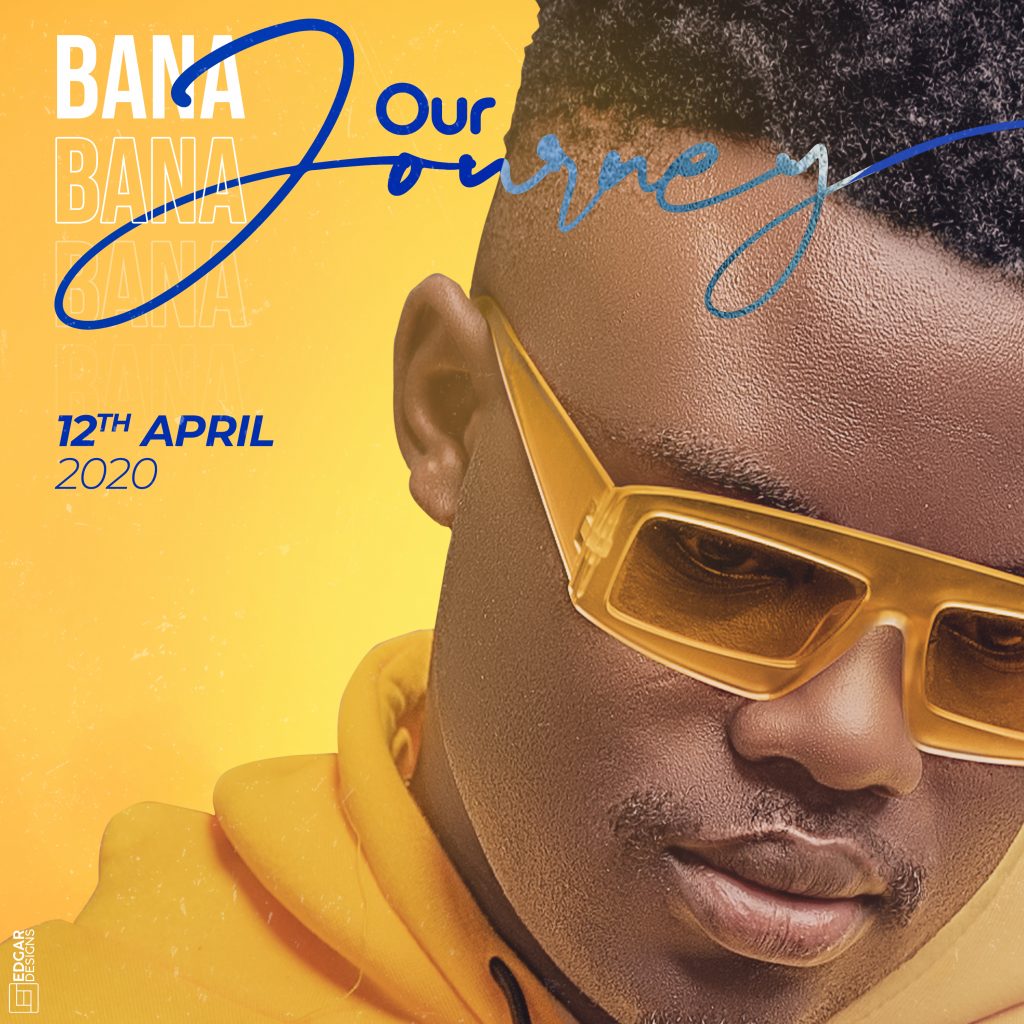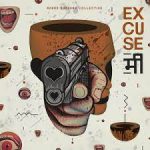Becoming known as Richman Bana, Banakeng Bunila Herman has skillfully integrated his unique identity into a captivating musical tapestry. Originating from Cameroon and currently residing in the UK, Richman Bana is not just an artist; he’s officially recognised as a Cameroonian musician, songwriter, and record producer. Rock the Joint Magazine always likes to feature some world music, and look at some artists we believe deserve wider attention as they are talented singer-songwriters with melody and heart! Richman Bana certainly falls into those categories. A man passionate about music in all forms, his songs are increasingly being noticed.
As background, his journey has been marked by significant moments that propelled him into the spotlight. Richman’s journey began in 2015, coinciding with his enrollment in a bachelor’s programme and his role as a lead singer in the University of Buea choir. Guided by his father, a music director, Richman’s foundational understanding of musical intricacies ignited a lifelong passion. Pursuing an independent musical path, Richman’s desire to blend artistry with culture, heritage and dance style, led to the release of his debut single, “Molyko Girl,” in 2016. This achievement not only increased his visibility but also opened doors to various performance opportunities. Subsequent releases, including the captivating remix of “Panchako Dance,” showcased his versatility and commercial appeal.
You can hear the album on this download.
In 2017, Richman Bana created his own music studio, known as Richman Entertainment. His first studio album, “Our Journey,” released on the 12th of April 2020, had success with singles such as “Pantchako Dance” (featuring Sedi B and Large Pro The Scientists), which brought him further international collaborations.
In 2020, he won Song of the Year at the Cefira Image Awards. He has continued to make music since then, travelling to further education in the UK, where he is producing more music and creating some cool videos, such as the ones we feature below for “Pain Killer” and “Molyko Girl.”
Talking to Richman, we began at the beginning and asked about his time with the University of Buea choir (in Cameroon) and the influence of his father in his musical life.

Richman Bana- I would say that my dad has played a big part in me being into music today, but it all started with me watching music on TV. I was brought up in a household where we had many music channels playing on TV. There was this particular channel that played a blend of African and Western music. I would always rush home from school to listen to the music, as at that time there was no social media or internet for me. It was this TV channel that gave me my music, and I listened to a lot of it from an early age. As for my dad, he was a music director for a choir known as the St. Augustine Choir; it was more like a church choir. He would write music in the evenings when he returned from work, and I joined him when he found I had an interest in music. I tried the choir for a bit in the church; he was a great influence on me, I would say.
Of course, there is so much influence of gospel music on modern music; performers such as Elvis, BB King, Nina Simone, and so many more all had gospel in their souls. It is hard to imagine modern music without gospel. Elvis would not have been Elvis without gospel.
Richman Bana- I do agree 100%, and it resonates with my music today. If you listen to my album, there is, for example, “Amen. Amen is a piece in which I thank God for being alive while at the same time relating to what is happening in my country. At the time, we had an outburst of conflict in the North-West region of Cameroon (fighting between the Cameroonian military and armed separatists, long-standing land conflicts between Mbororo Fulani herders, and farmers from other ethnic groups in the North-West region were fueling armed violence). At that time, I was feeling the pain, and that is where “Amen” comes from. I want to educate people about what is happening in Cameroon, and if you look at the song “Our Journey” from the album, it relates to what is happening at that time. I wrote it mostly in my native African language. In that song, I am talking about how our people should turn towards loving themselves, refrain from war, and try to solve problems amicably. Don’t resort to the guns; if you listen to the feel of it, it is all prayers.

One of the friends of our magazine is a Nigerian here in the UK, and he works hard to promote positive images of Africa. Here at the magazine, we are not well informed on Cameroon (beyond an awareness that Cameroon has a decent football team), and shockingly, we are not aware of the ongoing conflicts as they are not reported well in UK news outlets.
Richman Bana- The truth must be spoken, and some parts of Africa are suffering from conflicts, but it is no different from the rest of the world. Look at Ukraine; there is conflict in Europe. In Cameroon, one part of the country is suffering, and we do talk about it, but the whole album is not about war; the rest of it is about love and the future. I tell stories that touch on all aspects of my reality and what I have learned.
“Babylon” was an interesting track. Although not a single one connected with us at the magazine, the word “babylon” has all sorts of wider connotations with the Psalm about the “Rivers of Babylon” and the enslavement of the Jewish peoples. There are many different images surrounding the word.
Richman Bana- It is one of those songs that I still really like, even though I created it a few years ago. “Babylon” came after “Pantchako Dance. Now, when “Pantchako Dance” came out, it exploded in the English-speaking part of Cameroon, and I was experiencing some considerable success with people calling me for shows, and I was making quite a bit of money at that time, which was nice. So “Pantchako Dance was one of my first records, and I was succeeding and feeling I was going somewhere and proving all those people who were telling me not to go into music wrong. So “Babylon” is me telling my people that there is nothing that can stop me from going where I want to go. I am saying in this song that I believe in my art and where I am going. It is a motivational song for me. If you want to succeed in life, positive thinking helps you get through the obstacles that stand in your way. But as you said, Babylon as a word has an enslavement connection, but it is a song about breaking through those boundaries; it is a positive affirmation.

Richman Entertainment was set up in 2018 to promote new talent and give people a hand-up at the start of their careers (somewhat akin to what we do here in the magazine). We wanted to ask about that side of Richman’s work.
Richman Bana: I do enjoy production and artist development as a whole because I believe that to go far, you go with people. At the end of the day, I want to have an impact and bring people along with me. That was the original conception of Richman Entertainment in 2018. When I set up the studio, I set it up in the north-west region of Cameroon towards the end of my degree. Some of the artists I was working with then in 2016 were with “Straight Up Productions,” and we did that for a while. Then I came up with the idea of Richman Productions, where I and some of my friends worked together. We work with some good Afro-beat singers, some great video producers, and those working on the management side of things. We work for the vision and the desire to promote the music.
Music, on the production and songwriting sides, is changing with technology. We wondered how Richman saw the advent of technology and AI in the music business.
Richman Bana- I have studied AI as I recently finished my master’s in computing. I think it will do a lot of good, AI, as it will make things easier for us all. But at the same time, it will make people potentially lazy, as it can get the lyrics for you by typing a few words. But you still have to have the talent to make the most of it. It will lead to job losses, but it will also create jobs working in AI development. So there is never good without bad. I do feel AI can increase efficiency and the speed at which we can develop. Sometimes our brains can get stuck at a level when we get tired, but AI keeps us going and speeds up what we do. But then, on the negative side, if someone wants to copy my sound and style, they can abuse AI and try to make money off my sound, and that is something we need to prevent. But with licencing and publishing rights, no one should be able to steal my voice.
And where is Richman Bana in 2023? The first album came out in 2020, so what are the ongoing musical plans at the present time?
Richman Bana: In 2023, I will be in a good place in my life regarding music. In the past two years, I have been studying the music business and how to develop my communication skills. Not only that, I have been performing and reaching out to people. I have been doing university shows, and I am busy with events down on the South Coast of England. There are also festivals, and every day I am writing and working on a new EP that I am looking at for 2024. I am looking to collaborate with some UK-based musicians. Now, I can relate to those musicians who don’t want to invest in a whole album as it is a lot of investment, so artists will release a single every two months and get it up on Facebook and Tik-Tok and see how it does. Then, if it does well, they will get behind it and see if it can fly. I understand that, you should get the most from every piece you drop. But, for me, the album gives more validity to your work. It gives your work strength, and I will drop a few songs first and see how they do, and then try and bring things together as the EP or (maybe) album. Of course, many artists may not understand the business side of music, and I have gone a long way to learn that. You can put out a good song and get a hit, but if you don’t understand the business and how to licence your work and distribute it yourself, even if you have one hit song out there, you will still earn from it. I will finish by noting a Cameroon based artist in the US called Libianca who had a hit song called “People” and spoke about depression, anxiety, and alcohol dependence. The song gained the attention of many people on social media, and through that song, I saw how she strategically managed that song towards success and how much she has gained traction from that one song if you understand how the business works. As an artist, I know I need that one song to put me out there and get the deals—one song for people to know you—then they will start to look at the back catalogue!
And that finishes out our talk with Richman. We wish him every success and watch this magazine for updates on new music from him in 2024.
By Benny (the Ball) Benson
and
Mark C. Chambers




